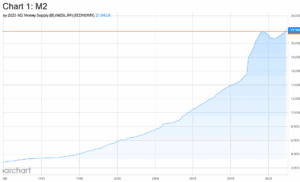The “Magnificent 7” stocks – Apple, Microsoft, Alphabet, Amazon, Nvidia, Meta Platforms, and Tesla – have been the undisputed leaders of the stock market in recent years. In 2024, these seven mega-cap tech giants have accounted for the vast majority of the S&P 500’s gains, dramatically outperforming the broader market.
While their market-beating performance is clear, how do these stocks stack up on a fundamental basis? Using Validea’s guru-inspired stock analysis models, we can peek under the hood to see which of the Magnificent 7 have the strongest fundamental underpinnings to potentially support their lofty valuations and market leadership.
Ranking the Magnificent 7
Based on Validea’s quantitative models inspired by legendary investors, here are the Magnificent 7 stocks ranked from strongest to weakest fundamentals:
- Alphabet (GOOGL)
- Microsoft (MSFT)
- Nvidia (NVDA)
- Meta Platforms (META)
- Apple (AAPL)
- Amazon (AMZN)
- Tesla (TSLA)
Let’s examine the top 5 most fundamentally sound Magnificent 7 stocks according to Validea’s models:
1. Alphabet (GOOGL) – The Search Giant Leads the Pack
Alphabet stands out as the most fundamentally sound of the Magnificent 7 based on Validea’s guru-inspired models. The Google parent company earns high marks across a range of investing styles:
- Growth & Momentum: Alphabet scores an impressive 94% on the Twin Momentum model inspired by Dashan Huang. This strategy looks for stocks with strong fundamental and price momentum, both of which Alphabet has in spades.
- Value: Warren Buffett-inspired Patient Investor model gives Alphabet a 93% score. The strategy favors companies with durable competitive advantages, consistent earnings growth, and strong returns on equity – all hallmarks of Alphabet’s business.
- Low Volatility: The Multi-Factor model based on Pim van Vliet’s research awards Alphabet a 93% score. This approach seeks large, stable companies with low volatility and strong momentum.
- Growth: Martin Zweig’s growth-focused strategy scores Alphabet at 77%, appreciating its strong and accelerating earnings growth.
Alphabet’s well-rounded fundamental profile, combining growth, value, and quality characteristics, makes it the top pick among the Magnificent 7 from a quantitative perspective.
2. Microsoft (MSFT) – The Software Giant’s Steady Excellence
Microsoft takes the second spot with its rock-solid fundamentals across multiple investing approaches:
- Value: The Warren Buffett-inspired Patient Investor model gives Microsoft a stellar 86% score, reflecting its consistent earnings growth, high returns on equity, and durable competitive advantages.
- Earnings Quality: Wayne Thorp’s Earnings Revision model scores Microsoft at 80%, indicating strong and improving earnings trends.
- Growth/Value Blend: James O’Shaughnessy’s strategy, which combines growth and value factors, awards Microsoft an 80% score.
- Low Volatility: The Multi-Factor model inspired by Pim van Vliet gives Microsoft a 75% rating, appreciating its stability and momentum.
Microsoft’s blend of steady growth, profitability, and quality earnings makes it a standout among mega-cap tech stocks from a fundamental perspective.
3. Nvidia (NVDA) – The AI Chip Leader’s Momentum
Nvidia, the AI chip juggernaut, scores exceptionally well on momentum and growth-focused models:
- Momentum: Nvidia achieves a perfect 100% score on both the Twin Momentum model (Dashan Huang) and the Quantitative Momentum model (Wesley Gray). Its incredible price and fundamental momentum are unmatched.
- Growth/Momentum: Validea’s proprietary Momentum Investor model gives Nvidia an 89% score, recognizing its strong earnings growth and price performance.
- Growth/Value: James O’Shaughnessy’s blended approach awards Nvidia an 80% score.
While Nvidia’s more value-oriented scores are lower, its exceptional momentum and growth metrics propel it to the third spot among the Magnificent 7.
4. Meta Platforms (META) – The Social Media Giant’s Resurgence
Meta Platforms (formerly Facebook) has seen a resurgence in its fundamental strength:
- Growth: Partha Mohanram’s P/B Growth model gives Meta an 88% score, appreciating its profitability and investment in future growth.
- Momentum: Wesley Gray’s Quantitative Momentum strategy awards Meta an 88% score, reflecting its strong price performance.
- Growth/Value: Peter Lynch’s P/E/G focused approach and James O’Shaughnessy’s blended strategy both give Meta 87% and 80% scores respectively.
Meta’s combination of renewed growth, momentum, and reasonable valuation metrics make it an intriguing fundamental play among the Magnificent 7.
5. Apple (AAPL) – The iPhone Maker’s Steady Hand
While Apple ranks fifth among the Magnificent 7 in this fundamental analysis, it still boasts impressive metrics:
- Value: Warren Buffett’s Patient Investor model gives Apple a strong 86% score, reflecting its consistent profitability and returns on equity.
- Growth/Value: James O’Shaughnessy’s blended approach awards Apple an 80% score.
- Growth: Partha Mohanram’s growth-at-a-reasonable-price strategy gives Apple a 77% rating.
Apple’s steady fundamental performance and blend of growth and value characteristics keep it in the top tier of the Magnificent 7 from a quantitative perspective.
The Bottom Line
While the Magnificent 7 stocks have collectively led the market higher, our analysis shows they are not created equal from a fundamental perspective. Alphabet, Microsoft, Nvidia, Meta, and Apple demonstrate the strongest quantitative profiles across a range of investing styles.
The Magnificent 7 stocks are certainly not cheap. But those comparing them to the stocks of the dotcom bubble are also likely missing the differences in the strength of their businesses and their valuations. A deeper look shows there is value within the Mag 7.
Research Links
—
Originally Posted July 14, 2024 – The Magnificent 7: Which Stocks Are The Most Fundamentally Sound?
Disclosure: Interactive Brokers Third Party
Information posted on IBKR Campus that is provided by third-parties does NOT constitute a recommendation that you should contract for the services of that third party. Third-party participants who contribute to IBKR Campus are independent of Interactive Brokers and Interactive Brokers does not make any representations or warranties concerning the services offered, their past or future performance, or the accuracy of the information provided by the third party. Past performance is no guarantee of future results.
This material is from Validea Capital Management and is being posted with its permission. The views expressed in this material are solely those of the author and/or Validea Capital Management and Interactive Brokers is not endorsing or recommending any investment or trading discussed in the material. This material is not and should not be construed as an offer to buy or sell any security. It should not be construed as research or investment advice or a recommendation to buy, sell or hold any security or commodity. This material does not and is not intended to take into account the particular financial conditions, investment objectives or requirements of individual customers. Before acting on this material, you should consider whether it is suitable for your particular circumstances and, as necessary, seek professional advice.



















Join The Conversation
For specific platform feedback and suggestions, please submit it directly to our team using these instructions.
If you have an account-specific question or concern, please reach out to Client Services.
We encourage you to look through our FAQs before posting. Your question may already be covered!